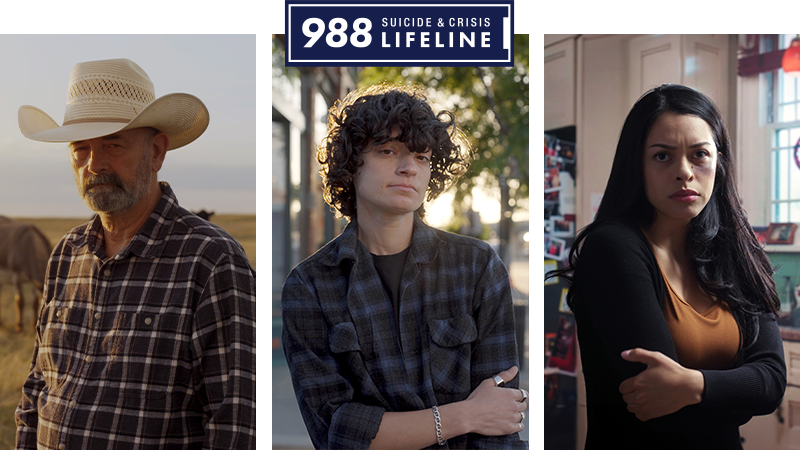988 is free, confidential, and available 24/7.

Simply call or text 988—or chat online at 988Lifeline.org—to connect with care and support during a mental/emotional health crisis or for substance-related concerns.
If you or someone you know is in immediate danger of harming themselves, please call 911.
What is 988?
The 988 Suicide & Crisis Lifeline (formerly known as the National Suicide Prevention Lifeline) offers 24/7 call, text and chat access to certified crisis intervention specialists.
These certified crisis intervention specialists are there to help if you’re experiencing:
Emotional distress
A mental health crisis
Substance-related concerns
A suicidal crisis
Numerous studies have shown that most Lifeline callers are significantly more likely to feel less depressed, less suicidal, less overwhelmed, and more hopeful after speaking to a certified Lifeline crisis intervention specialist.
988’s certified crisis intervention specialists are available whenever you need them, wherever you are.
They help thousands of people overcome suicidal crisis situations and mental-health-related distress every day—and they’re there for you right now.
Find Local Mental Health and Substance Use Treatment Services
We’ll help you connect with affordable, high-quality mental health and substance use treatment services right here in your community.
When to call or text 988 vs. 911 vs. 211
To ensure you connect with the right help at the right time, remember these differentiators: Support (988) vs. Services (911) vs. Solutions (211).
988
For mental and emotional support during a behavioral health crisis or for substance-related concerns, call or text 988.
911
For emergency services during a physical emergency, call 911.
211
For help finding community solutions to address health and human services needs (including food, financial or housing insecurity), call or text 211.
Frequently Asked Questions About 988
What happens when you call 988?
Next, a trained crisis counselor will answer the phone. They’ll listen to you, work to understand how your problem is affecting you, provide support, and share resources that may be helpful to you.
What happens when you text 988?
To text with a Spanish-speaking counselor, text AYUDA to 988.
In what languages are 988 services available?
When calling 988, press 2 to connect to a trained Spanish-speaking crisis counselor.
When texting 988 in Spanish, you will be asked to type “Ayuda” to connect with a Spanish-speaking counselor.
If I contact 988 for help, will I be hospitalized?
Will my call to the Lifeline be recorded?
It’s also important to note that people contacting 988 are not required to provide any personal data to receive services. SAMHSA recognizes the importance and the expectation of privacy when a person contacts 988. The network system has several safeguards to address concerns about privacy.
What measures are in place to protect data privacy of users of 988?
Any effort to obtain demographic information from those who use 988 will serve three primary purposes: To save lives, to connect people to ongoing supports, and to evaluate system needs and performance, particularly ensuring that gaps and inequities are being addressed.
